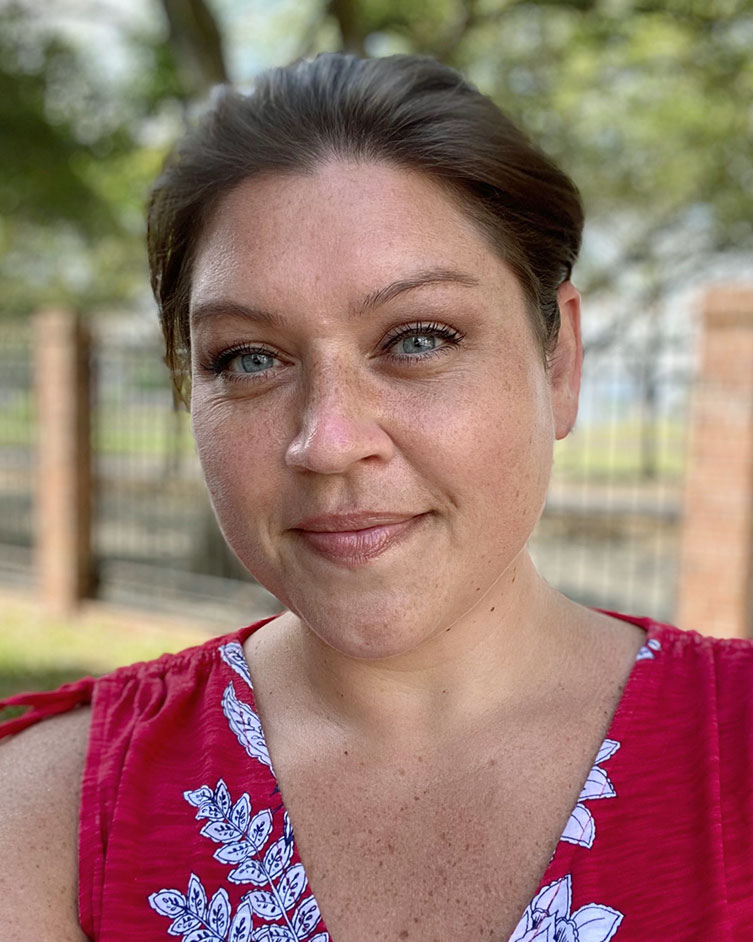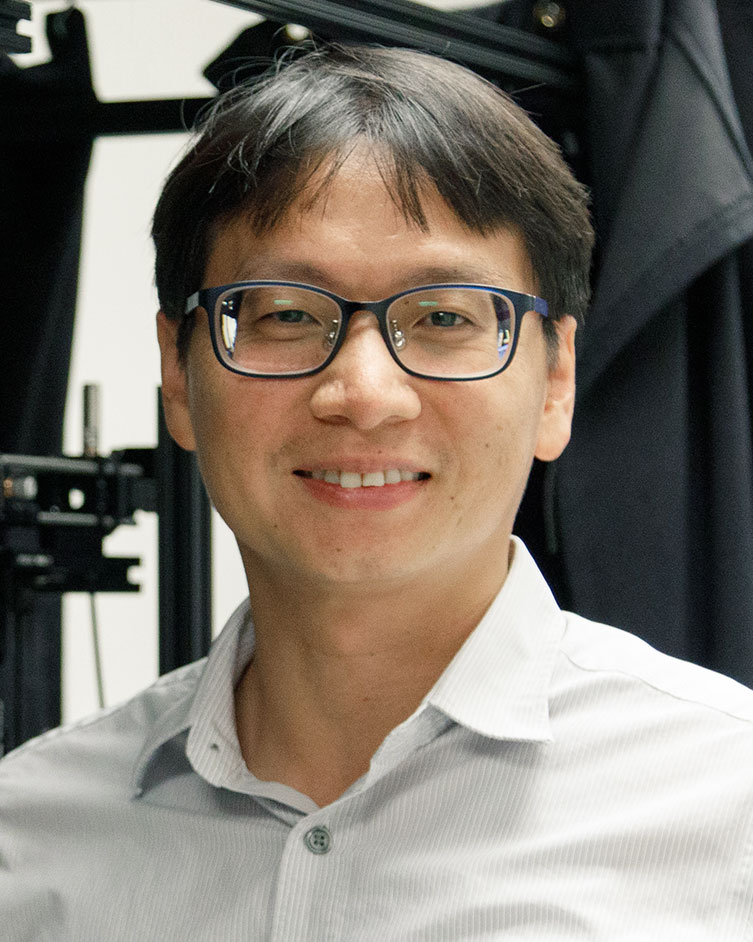Both Professors Are Junior Faculty Members
To say that teaching during a pandemic has been challenging would be an understatement. For Lisa Farmer and Tai-Yen Chen, it is certainly true, but their adaptation and success educating students despite the circumstances is admirable.
The two junior faculty members at the University of Houston are recipients of the College of Natural Sciences and Mathematics John C. Butler Excellence in Teaching Award for their outstanding contributions to the success of the College’s educational programs.
Instructional assistant professor of biology and biochemistry Lisa Farmer received the award in the non-tenure track faculty category. Chen, assistant professor of chemistry, received the award in the tenured and tenure-track faculty category. The award carries a cash prize of $5,000 and a plaque.
“The Butler award means a lot to me,” said Farmer. “I served on the Butler committee for the last four years, and I saw exactly what my colleagues at NSM are capable of doing. Rebecca Forrest won last year. To follow on the heels of someone like her… I am just really surprised and flattered.”
Farmer also received the 2021 University of Houston Teaching Excellence – Provost Core Award for teaching core classes.
In his letter of recommendation for Tai-Yen Chen, chemistry department chair and professor of chemistry David Hoffman writes Chen, for the past few years, earned some of the highest instructor ratings from students he has seen since becoming chair.
“It’s amazing I received this award,” Chen said. “I think this is a great recognition of my efforts to bring my teaching to a level that I expect from myself.”
Farmer: Emphasis on Active Learning
Farmer’s teaching includes an emphasis on active learning. In lower-level classes, students are placed into small groups where each student is chosen by Farmer for a strategic reason; she tries to place at least one strong learner in each group so they can help others while reinforcing their own understanding of the material. Students work together on critical thinking problems to hone their application skills and mastery of course content.

In her upper-level classes, Farmer places students into “expert” groups where they dissect information about diseases. Then, they are scrambled into different groups where they must teach each other what they learned in their expert group.
“It’s fun that midway through the class they switch teams and engage with new people,” she said.
She also dedicates time in her higher-level classes to teach students how “to understand what the parts of a scientific article are designed to do, how to glean a hypothesis … how to critically interpret results,” she writes in her award application.
In her biology classes for non-majors, Farmer incorporates interesting case studies. For example, students examined a case study about Thomas Jefferson’s family to infer whether he fathered children with one of his slaves, Sally Hemings.
Students consider historical evidence, family pedigrees and DNA sequencing information from descendants of each side and determine if the evidence suggests Jefferson was the father. “History majors get excited to discover a kind of historical ‘Maury Povich’ in the mystery of paternity,” Farmer said with a smile.
To increase student professional development and equity during online learning, Farmer and her colleague Jenifer Leming, instructional assistant professor of biology and biochemistry, created mini lectures. They are called SHARP lectures and stand for Success Has A Recipe, People! The pre-recorded lectures aim to teach students “real-life” lessons, from getting started in a new course, maintaining a work-life balance and developing emotional intelligence, to thinking about alternative career paths, learning from failure and recognizing grit.
Biology and biochemistry instructional professor Chad Wayne writes in his recommending paperwork that Farmer has presented at symposia for secondary educators and for higher education groups.
“Her work in the classroom is impacting how others teach biology in secondary education,” he writes, “which ultimately impacts the quality of student matriculating into college. Lisa is positively impacting science education at almost every level.”
Chen: Collaboration Between Students
In Chen’s classes, he tries to engage students as much as he can as well. As the semester progresses, he said he can feel a stronger, mutual trust form between him and his students. Because of his care for them, students actively try to improve their grades, and it reflects on their final grade.

One of Chen’s teaching techniques is creating surveys that ask students what is helpful to them in class and what are areas he can improve on in his teaching.
He also encourages students to work together to complete assignments because sometimes certain topics are too abstract.
“I want them to improve their personal capability,” he said. “If you learn to work collectively very young and be responsible, I think that’s a good lesson to learn from my class. However, groups can’t be too large because people can get lazy. Three to four students is the best size for the group.”
During the pandemic, he had to work especially hard to engage students. When classes were in person, he would often rely on students’ facial expressions to gauge whether he was going too fast or if the material was too complicated for them.
To facilitate a better learning experience for students this year, they were instructed to download "skeleton" notes he provided before class. Chen uses Microsoft Teams to record his lecture and asks students to follow along by filling in the notes. After class, students review the lecture video, chat with their classmates and him in the chat box on Teams, and share relevant materials or links.
Chen adds that according to the results from his survey, many students said the skeleton notes were an excellent example of how to create their own study notes by distilling essential knowledge from a dense textbook.
A former undergraduate student writes in his recommendation letter that Chen encouraged everyone to attend office hours, which led the undergrad to establish a strong mentor-student relationship with Chen.
“Due to his exceptional teaching and guidance,” he writes, “professor Chen interested me in becoming a professor and was a predominant influence on my decision to pursue a Ph.D. in chemistry.”
Chen is also involved in community engagement. Hoffman writes in his letter that Chen coordinated with NSM to host students from Hightower High School on a Day of Discovery activity. 72% of the school's student body is African American or Hispanic.
Additionally, Chen is developing an outreach activity to Third Ward students in collaboration with Jerrod Henderson, director of UH's Program for Mastery in Engineering Studies.
- Rebeca Trejo, College of Natural Sciences and Mathematics